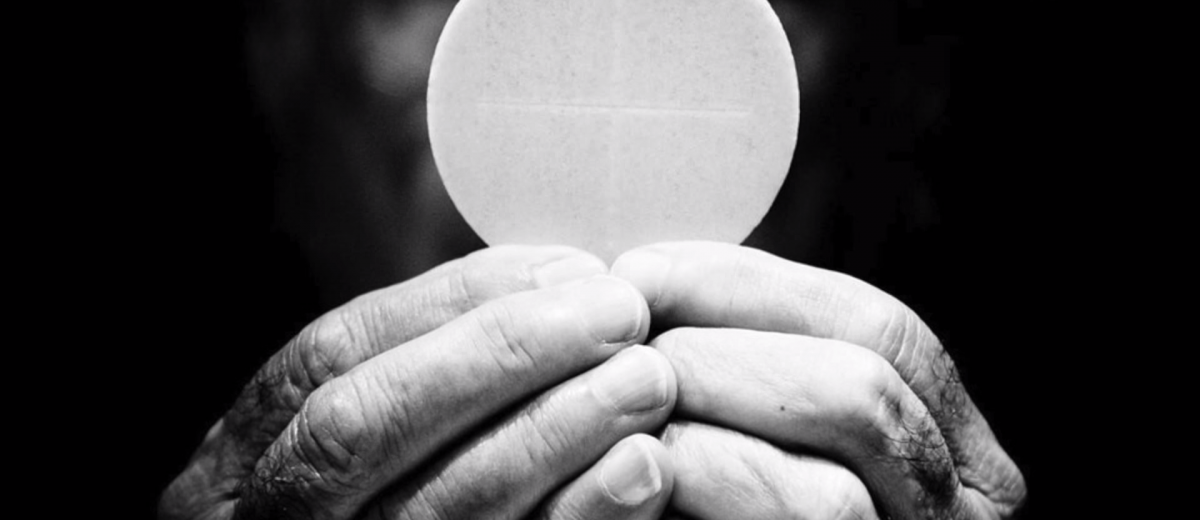A few months ago, I was stuck in the deep trenches of service options on the Catholic Volunteer Network website. Simultaneously, I was overwhelmed when thinking about the enormity of social, political, and economic issues affecting real people’s lives inside and outside the U.S. Would I be choosing one community over another? What are the implications of that? Who is my brother, sister, mother? However, the priest’s words in my dorm’s Mass serendipitously intercepted me at a crucial moment of my post-graduate discernment process. The words were nothing out of the ordinary, but resonated loudly:
Look, we pray,
upon the oblation of your Church
and, recognizing the sacrificial Victim
by whose death you willed to reconcile us to yourself,
grant that we,
who are nourished by the Body and Blood of your Son
and filled with his Holy Spirit,
may become one body, one spirit in Christ.
As I heard that line in my dorm’s chapel, I felt the deep call to see what a just world might look like when shared across religious, national, and cultural boundaries. As we “become one body, one spirit in Christ,” we are reminded of our creation in the image of God and that all human life is sacred. This comes directly from our creation and is not dependent on any specific classification of this world.
Pope Francis further echoed the idea of becoming “one body” when he stated: “A person who thinks only about building walls, wherever they may be, and not building bridges is not Christian. This is not the Gospel.” Though nationality can build walls in relationship, so can other factors like language, ethnicity, religion, and class. We must move beyond sympathy and towards empathy by crossing these walls. Through the Eucharist, we enter into an empathetic attitude rooted in Christ’s life of sacrificial service. It is that simple. I am not looking to solve a community’s problems by doing service, but wondering what the Eucharist in action might look like.
Through international service, I will try to build bridges, to understand the universal community that the Eucharist forms. Through the challenging principles of Jesuit Volunteer International, I can put the faith that I find in the liturgy into action. While teaching in Ecuador, or practicing medicine in Uganda, or literally building a bridge in Nicaragua, we offer our lives to serve all of God’s people. When we “become one body,” we remember that our call to serve transcends classifications. By becoming one body, we strive to serve all, because no one is excluded from the oneness of God.
We cannot only serve and pray for a specific group of people, because if we truly follow the Eucharist we understand its transnational element. We commit to serving and opening our hearts with God’s people in our present communities, at home, and abroad to bring us to full understanding of listening, observing, and praying while the priest blesses the Eucharist.
We also do not need to cross national borders to begin this daily call of the Eucharist. We can take steps on a small and large scale to build bridges across walls to become one body. My ethical, religious, and academic questions for international service helped me understand the Eucharist better, a call to be united as one body. We have to find ways to recognize the connection that we all share as members of Christ’s body if we wish to follow the priest’s words, becoming “one body, one spirit in Christ.”
Hannah Petersen is a senior American Studies major with minors in Education, Schooling, and Society, and Latino Studies at the University of Notre Dame.



